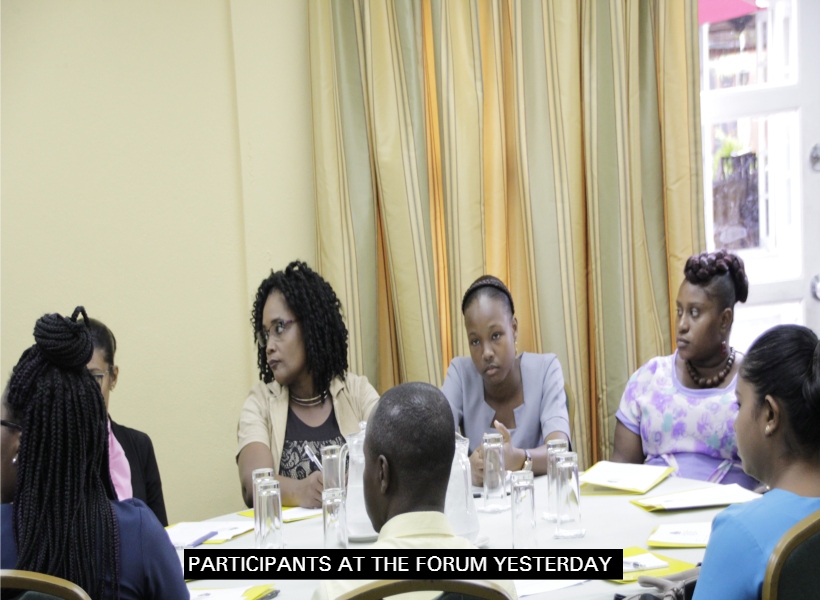A two-day Drug Prevention Consultation and Training session for teachers and welfare officers commenced at Cara Lodge, Quamina Street, Georgetown yesterday and is expected to aid the Education Ministry’s fight against illicit drugs in the school system.
At the session, it is expected that the Ministry will be able to finalize the development of its Inter-Agency Protocol on Drug Use among Minors. The participating agencies in the two-day consultation are the Customs Anti-Narcotic Unit, the Narcotics Division of the Guyana Police Force and the United Nations International Children’s Emergency Fund (UNICEF).
UNICEF Education Specialist, Ms. Audrey Rodrigues, said that UNICEF’s role in assisting the Education Ministry is a process that started last year. She said that the critical activity for 2017 was the mapping of drug offences for juveniles in Guyana.
Having done that mapping, Rodrigues noted that it was realised that what needed to be done could not be executed in isolation by any one agency.
“We recognised that to move forward there was a need for an inter-agency approach,” explained Rodrigues. She said that work has been done on the Protocol but it was necessary for the consultation to be held in order to hear the thoughts of stakeholders.
She said that the mapping and the Protocol are critical regarding UNICEF and the other agencies meeting and taking decisions to take matters to the children’s court.
Moreover, she said that the goal of UNICEF and the Education Ministry to provide safe school environments is important because the Safe School Protocol sets out standards and guidelines to promote the practices which contribute to the good development of students’ welfare.
The Education Specialist explained to the participants that the consultation provides them with a unique opportunity to review the Protocol and make submissions that can serve to improve it so that it can be beneficial to students, teachers and welfare officers while making each party accountable for their actions.
Assistant Chief Education Officer (Primary), Mr. Owen Pollard, said that it is sad that youths are able to access illegal drugs, misuse them or abuse them.
He said that over the last few years the Ministry of Education has sought to strengthen its partnership through the Drug Information Network of the National Anti-Narcotic Agency to combat the issue of drug use amongst minors.
Noting that there has been an increase in reports of drug use by students, Mr. Pollard said that the Education Ministry has stepped up its surveillance and its education efforts through the establishment of a task force that includes enforcement agencies like the Guyana Police Force and CANU.
Coordinator of the Consultation and Health Promotion Coordinator in the Ministry of Education, Ms. Dionne Browne, said that among the stakeholders who have been engaged in this process are the Ministry of Public Health, the Drug Information Network and the Ministry of the Presidency.
She said that both CANU and the Guyana Police Force have been extremely cooperative and helpful by lending their support and expertise to arrest the issue of drug use in schools.
Meanwhile, Deputy Head of CANU, Mr. Lesley Ramlall, said that in the school system there has been a decrease in the use of cigarettes, cannabis, cocaine and alcohol by children. However, he noted that from 2017 there has been an increase in the use of synthetic drugs.
He said that in the past Guyana was not known to be a country that uses synthetic drugs, hence many reports did not shed light on the subject. According to Ramlall, it is known that many teachers do not possess the skills to deal with students who are using drugs. Hence the consultation is timely to ensure that teachers in the system are equipped with the necessary skills and knowledge.













